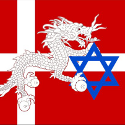Part 54: Q&A - November 9


This has been the weather forecast for today. Since we have some time, why don't we field a few calls again. First we have regular caller Gil Suza. Go ahead Gilbert.
 Hi, I just was listening to the Empire Total War series, and noticed the rebellion seemed shockingly easy to defeat. Why would the French rebel if they would be beaten so easily, and why were empires so afraid of rebellions?
Hi, I just was listening to the Empire Total War series, and noticed the rebellion seemed shockingly easy to defeat. Why would the French rebel if they would be beaten so easily, and why were empires so afraid of rebellions?
Part of the danger of rebellions is in the cost. An army sent to capture a lucrative capital would cost the equivalent of hundreds of millions of pounds to maintain every year, and often, it would be impossible to collect any tax revenue from the populace when they are willing to form riots, protests and strikes rather than work, making the entire venture a drain on any empire's resources. Often enough that the conquering army could not afford to be dramatically increased in size or quality.
Rebellions also grow year over year, meaning they must be completely eliminated immediately. If they aren't, they often burn down key economic buildings, form riots in cities and generally cause chaos and pandemonium. The difficulty where you can fight a rebel force, is in completely eliminating it, rather than simply defeating it. Thus, rebellions are more dangerous economically, rather than in a military sense, though there are times in history where the garrison army will move poorly to attack the rebels, only for the rebel army to sneak around them and retake the cities, or even times they would outright defeat a poorly led garrison.
We have another call coming in from a Mr. Steiner from Leeds.

On that topic, wasn't France beaten awfully easily? I would have thought a super power such as France would have put up more of a fight.

Professor David Stephenson is intentionally playing up some of the Dutch victories, as after all, it is a series about the victories of the United Provinces, but even in his analysis, things aren't entirely smooth.
While yes, the French did move their major garrison away from Paris towards Alsace-Lorraine, as a large Westphallian army was marching on them (as was part of the Dutch political conspiracy), and they believed the Dutch land forces could not cross Brussels and remain strong enough to capture Paris, they did not anticipate a defeat at Le Havre.
The pivotal battle of Le Havre consisted of three French frigates and four heavily armed support vessels, against two Dutch frigates and three supporting vessels. Even though the Dutch managed to cross the T at Le Havre, eliminating three of the French ships immediately, the French still had three frigates and a supporting vessel, which were a match to the Dutch ships. In the end, the battle of Le Havre was a very close run fight, with the two remaining battered Dutch ships only capturing the remaining French ships because the French Admiral had died under fairly concentrated fire, demoralizing the fleet. Had the Dutch lost this crucial uphill battle, their army would have been sunk during the crossing, and Amsterdam would be left with no army at all, and an angry and powerful France in control of the channel. Had the Dutch not attempted the battle of Le Havre, the opportunity would have been lost, as the French threw back the Westphallians, and would have had ample time to reinforce Paris, and what's worse, finish their city walls.
What's more, even though the Dutch arrived in Paris well before the main French army was even aware of the defeat in the channel, the battle of Paris itself had left 700 Dutch dead out of 1100. It was definitely a hard fought battle. Had they committed a small error during it, they could very well have lost.
Our next call coming in is from a Mrs. Sarah Hornblower, Sarah?
 I was wondering why war coverage was being done on Radio 1, when this station is more about politics and news than they are.
I was wondering why war coverage was being done on Radio 1, when this station is more about politics and news than they are. It is unfortunate to have to say we are running news of the war on BBC radio 1 because the demographic of individuals in radio 1 are of the enlistment age, and as we are in need of more men to enlist, any content relating to that war has been moved as short updates in between segments on BBC radio 1. Radio 1 is also our more popular station among our soldiers.
It is unfortunate to have to say we are running news of the war on BBC radio 1 because the demographic of individuals in radio 1 are of the enlistment age, and as we are in need of more men to enlist, any content relating to that war has been moved as short updates in between segments on BBC radio 1. Radio 1 is also our more popular station among our soldiers....
 We've had several calls about typographical errors on our web page, and would like to thank anyone that has found any. Since we are severely short staffed in our web literate department currently, any errors found in the transcriptions would be greatly appreciated.
We've had several calls about typographical errors on our web page, and would like to thank anyone that has found any. Since we are severely short staffed in our web literate department currently, any errors found in the transcriptions would be greatly appreciated. And that's all the time we have for calls for now. Up next, the World at One.
And that's all the time we have for calls for now. Up next, the World at One.